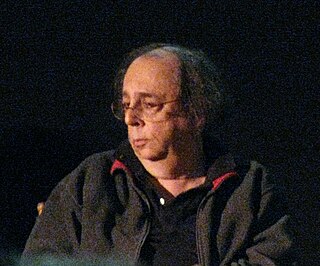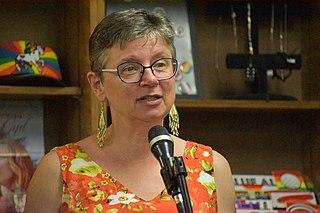
The Alpine Fellowship is a charitable foundation that supports, commissions and showcases artists, writers, academics and playwrights. It was founded in 2013 by artist Alan J Lawson and Jacob Burda. [1]

The Alpine Fellowship is a charitable foundation that supports, commissions and showcases artists, writers, academics and playwrights. It was founded in 2013 by artist Alan J Lawson and Jacob Burda. [1]
The focal point of activities is an annual four day symposium. [2] The symposium 'draws together participants from academia, the arts and business' [3] and they have been held on the themes of 'home', 'representation', 'the self-portrait', 'ephemera' and 'landscape'. [4] Fellows, "can attend the symposium by competing in one of the different prize categories: drama, writing and visual arts." [5]
Previous guests have included playwrights Jessica Swale, Polly Stenham, actor Charity Wakefield, philosophers Simon May and Sir Roger Scruton, [1] the novelist Ian McEwan, the poets, Ruth Padel, Gillian Clarke and John Burnside, [2] film maker Luc Jacquet and art historians, including Andrew Graham-Dixon. Symposiums have been held in Switzerland, Scotland, and Italy. [6]
In 2015 The Alpine Fellowship endowed the ‘Alpine Fellows’ programme at NYU ensuring financial support for students pursuing interdisciplinary research at the Graduate Level at NYU. [7]

In 2014, the Fellowship discussed the theme of 'representation' with contributions from the realms of academia, music and the visual arts. Philosophers emphasized the difficulties and dangers inherent in the subjectivist approach that regards the world as the 'mere' representation of the subject. [1] The annual symposium was held at the Fondazione Giorgio Cini, on the island of San Giorgio, Venice, in the years 2015 through 2018. [3]
The 2015, symposium convened over the theme 'authorittrato - self-expression in the age of instant communication'. Participants tried to trace the historical developments that occurred since Albrecht Dürer's self-portrait in 1500 to today's 'selfie-culture'. [2]
In 2016, the Fellowship convened on the topic of ‘Ephemera’ and the nature of time. Philosophers Luciano Floridi and Mark Wrathall spoke to underline the way our self-understanding is inextricably bound up with our understanding of time. [6]
In 2017, the Fellowship discussed the theme of 'Landscape'. Amongst other things, virtual reality pioneer Nonny de la Pena gave a talk on 'virtual landscapes' that stirred much debate. [3]
In 2018, the theme was 'Childhood'.
In 2019, the theme was 'Identity' and the symposium was hosted at Fjällnäs, Sweden. [8]
The 2020 and 2021 symposiums were both cancelled due to the pandemic.
In 2022, the theme was 'Freedom' and speakers included Esther Perel, Yuval Harari and Clare Chambers (Philosopher) . [9]
The Alpine Fellowship offers prizes in Academic Writing, Theatre, Poetry, Writing, and Visual Arts. These are aimed at supporting emerging artists, writers and playwrights from around the world. [10]
The advisory board includes Katherine Rundell, Andrew Huddleston, Nell Leyshon, Mike Lesslie, Iain Martin and Sukhdev Sandhu.

Richard Foreman is an American avant-garde playwright and the founder of the Ontological-Hysteric Theater.

An academic conference or scientific conference is an event for researchers to present and discuss their scholarly work. Together with academic or scientific journals and preprint archives, conferences provide an important channel for exchange of information between researchers. Further benefits of participating in academic conferences include learning effects in terms of presentation skills and “academic habitus”, receiving feedback from peers for one's own research, the possibility to engage in informal communication with peers about work opportunities and collaborations, and getting an overview of current research in one or more disciplines.

Andrew Michael Graham-Dixon is a British art historian and broadcaster.
José Esteban Muñoz was a Cuban American academic in the fields of performance studies, visual culture, queer theory, cultural studies, and critical theory. His first book, Disidentifications: Queers of Color and the Performance of Politics (1999) examines the performance, activism, and survival of queer people of color through the optics of performance studies. His second book, Cruising Utopia: the Then and There of Queer Futurity, was published by NYU Press in 2009. Muñoz was Professor in, and former Chair of, the Department of Performance Studies at New York University's Tisch School of the Arts. Muñoz was the recipient of the Duke Endowment Fellowship (1989) and the Penn State University Fellowship (1997). He was also affiliated with the Modern Language Association, American Studies Association, and the College Art Association.

Marie Howe is an American poet. Her most recent poetry collection is Magdalene. In August 2012 she was named the State Poet for New York.
Anne Friedberg was chair of the Critical Studies Division in the School of Cinematic Arts at the University of Southern California and President-elect of the Society for Cinema and Media Studies. An author, historian and theorist of modern media culture, Friedberg received her PhD in cinema studies from NYU. She was on the faculty of Film and Media Studies at UC Irvine, where she was the principal architect for a new interdisciplinary Ph.D. program in Visual Studies and the founding director and programmer of UCI's Film and Video Center.
Kriota Willberg is a cartoonist and visual artist who draws from decades of experience as a massage therapist and educator in health sciences and the arts. She is the author of Draw Stronger: Self-Care For Cartoonists & Other Visual Artists, a comprehensive guide to injury prevention for cartoonists. Her comics have appeared in: SubCultures, Awesome Possum, 4PANEL, The Strumpet, Comics for Choice, TheGraphic Canon; and the journals Intima and Broken Pencil. She is the first artist-in-residence at the New York Academy of Medicine Library.
Willy Conley is an American deaf photographer, playwright, actor and writer.
Kim Stringfellow is an American artist, educator, and photographer based out of Joshua Tree, California. She is an associate professor at the San Diego State School of Art, Design, and Art History and received her MFA in Art and Technology from the School of the Art Institute of Chicago. Stringfellow is notable as an artist for her transmedia documentaries of landscape and the economic effects of environmental issues on humans and habitat. Stringfellow's photographic and multimedia projects engage human/landscape interactions and explore the interrelation of the global and the local.

Aviva Rahmani is an Ecological artist whose public and ecological art projects have involved collaborative interdisciplinary community teams with scientists, planners, environmentalists and other artists. Her projects range from complete landscape restorations to museum venues that reference painting, sound and photography.
Kristoffer Díaz is an American playwright, screenwriter, and educator. As a playwright, he has five full-length titles amongst other works which have been widely produced and developed. In 2010, he was a finalist for the Pulitzer Prize for Drama. In 2011, The New York Times awarded Díaz with the Outstanding Playwright Award. He has worked with television networks like HBO, FX, Fox, ESPN, and Netflix. Díaz currently teaches at New York University's Gallatin School of Individualized Study. Díaz is the Head of Admissions and an associate professor at New York University Tisch School of the Arts. Diaz teaches dramatic writing and contemporary US theater. Diaz's primary focus is American plays and musicals.

Lisa L. Moore is a Canadian-American academic and poet. She earned a B.A. in English with honors at Queen's University in 1986, and then completed her doctorate at Cornell University in 1991. Principal themes in Moore’s work include the centrality of love between women to literary genres such as the novel, the landscape arts, and the sonnet; the transatlantic and multi-racial history of feminist art and thinking; and the importance of poetry to second-wave feminist, womanist, and lesbian cultures and politics.
Pieter Jacobs is a South African playwright, actor and arts executive. He was the chief executive officer of The Arts & Culture Trust (ACT) until 2010.
Gina Gabrielle Starr is an American literary scholar, neuroscientist, and academic administrator who is the 10th president of Pomona College, a liberal arts college in Claremont, California. She is known for her work on 18th-century British literature and the neuroscience of aesthetics. She is the recipient of a Guggenheim Fellowship, an NSF ADVANCE award, and a New Directions Fellowship from the Mellon Foundation. From 2000 to 2017, she was on the faculty at New York University. In 2017, she became the first woman and first African-American president of Pomona College. Starr was elected a member of the American Academy of Arts and Sciences in 2020.
Georgina Leanse H. Escobar is a Mexican-American playwright, raised on the frontier in Juárez, with a strong sense of her dual nationality. Her plays explore themes of fantasy, mythology, witchcraft, feminism and the breakdown of the family. Escobar also conducts artistic youth workshops, directs musicals, as well as performing translation work.
Sassy Ross is a poet. Born in Saint Lucia, she lives in New York City.
C. Quintana is a Cuban-American playwright, poet, and writer. Her works have been published in literary journals and produced across the United States. The Heart Wants, her chapbook of poetry, was published in 2016 by Finishing Line Press.

Gene Andrew Jarrett is an American professor, literary scholar, and academic administrator. He is Dean of the Faculty and William S. Tod Professor of English at Princeton University.
Giorgio Bertellini an Italian-American media historian who specializes in the ways national and racial diversity informed American cinema's representation of citizenship, stardom, and leadership during the era of migrations, fascism, and World War II. He is currently Professor in the Department of Film, Television, and Media at the University of Michigan.
Andrew Winer is an American novelist. Recipient of a National Endowment for the Arts Fellowship in Fiction and author of the novels The Marriage Artist (2010) and The Color Midnight Made (2003), he writes and speaks about literary, philosophical, and artistic matters. Presently he is completing his third novel and a book on the contemporary relevance of Friedrich Nietzsche’s central philosophical idea, the affirmation of life. Andrew Winer is also an artist.